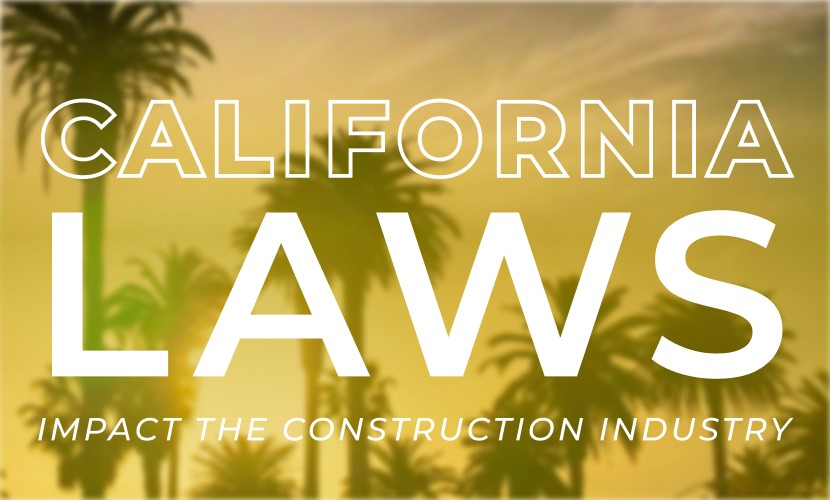California introduced several new laws for 2024 that impact the construction industry. The following is a recap of some of these laws you should be aware of.
Increase in Minimum Wage
Effective January 1, 2024, California’s minimum wage increased to $16 per hour from $15.50 for all employers. The increased minimum hourly wage also affects salaried employees. Generally, salaried exempt employees must be paid twice what they would have earned as an hourly full-time employee.
Enhanced Workers’ Compensation Classification
Effective July 1, 2024, contractors will be required to certify Workers’ Compensation classification codes when renewing their licenses. The requirement ensures proper Workers’ Comp coverage and accurate worker classification. Review your current classifications to be sure you comply with the law.
New ADU Construction Standards
Beginning this year, new regulations for accessory dwelling unit (ADU) construction are in place. The new rules change the minimum height limits and allow the possibility of two-story units.
Mandatory Toilet Facilities at Construction Sites
AB 521 mandates the provision of toilet facilities at all construction job sites, effective January 1, 2024. Contractors should ensure that the installation and ongoing maintenance of these facilities meet the new standard.
Marijuana Usage Protections
AB 2188, passed in 2022 and effective January 1, 2024, provides protections for California employees who use marijuana on their own time, except for “employees in the building and construction trades” or applicants or employees hired for positions requiring a federal government background investigation or security clearance. The new cannabis law does not overturn state or federal laws that require applicants or workers to be tested for restricted substances as a condition of employment, obtaining government funds or licensing-related benefits, or entering into federal contracts.
A new government code, as amended by SB 700, also prohibits employers from asking job candidates, especially those in construction and building trades, about their former cannabis use. Discrimination based on information about a person’s prior cannabis usage derived from their criminal history is illegal unless the employer is permitted by state or federal legislation to consider or inquire about prior cannabis use.
To comply with these new requirements, businesses should examine their drug testing, recruiting, and employment policies and procedures.
Specialty Contractor Contracting Prohibitions
AB 1204 prohibits specialty contractors from entering into contracts with multiple subcontractors with the same license type on a single project unless one of two conditions is met:
- The subcontractor uses employees to perform work under that specific license classification for the project.
- The specialty contractor has signed a legitimate collective bargaining agreement. Failure to follow this rule is grounds for disciplinary action. This rule covers more than 40 types of specialized contractor licenses, including those for concrete, drywall, carpentry, electrical, flooring, landscaping, roofing, sheet metal, and solar.
Extended Statute of Limitations for CSLB Offenses
SB 601 amends the Contractors State License Law, which governs the licensing and regulation of contractors through the Contractors State License Board within the Department of Consumer Affairs. Historically, legal action for violations had to commence within a year of the incident. SB 601 extends the statute of limitations, allowing prosecution of misdemeanors linked to license misuse to begin within three years of the offense being found or completed, whichever comes first.
Additional new laws impact noncompete agreements, paid sick leave, reproductive loss leave, workplace violence plans, and employee retaliation claims.
Please consult your legal professional for further information on how these laws may impact your business.
Sources: State of California Department of Industrial Relations, The Green Law Group, KCRA

